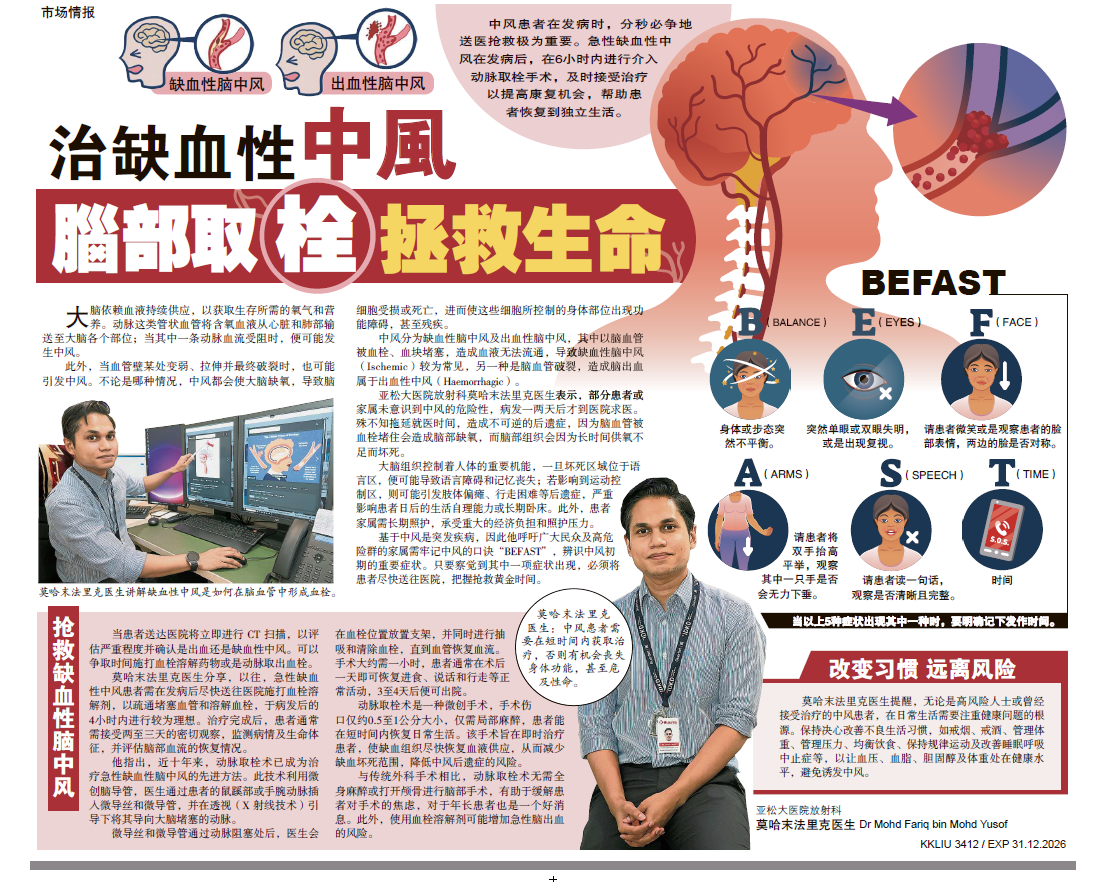One of the most difficult part of being a clinician is having to tell a patient that they have cancer. Although many types of cancers are now curable especially with early diagnosis and treatment, most people still consider cancer to be a one-way ticket to nowhere.
Strangely enough, treating cancer as a disease is actually the least difficult part. The most difficult part is handling the patient’s emotional and mental wellbeing after their diagnosis, because it can affect the prognosis and treatment outcome. One example is patients who delay treatment for too long after getting their diagnosis. This can cause the condition to get worse, and it may be too late or take more effort for treatment to work eventually.
According to psychiatrists, studies show that about 70-75% of cancer patients will experience clinical depression. The main reason for depression is deep-seated anxiety, of not understanding what is happening to their bodies and what to expect. Classic signs of clinical depression include losing interest in favourite activities, withdrawal from social activities and simply not wanting to get out of bed in the morning.
This is sometimes frustrating for friends and family who cannot understand why the patient is delaying or refusing treatment. What most people do not understand is that treatment is not something that immediately comes to mind when someone is diagnosed with cancer. Usually their minds will first go blank, until the reality sets in.
Their most immediate concerns would be mundane things like who will cook for the family and take care of elderly parents, whether they have enough finances for treatment, what happens now. Although they may appear calm and collected, they are usually going through great internal turmoil.
Having the support of family and friends to ensure that the other aspects of life such as family, finances, work and other responsibilities are well taken care of is crucial. This will allow the patient to focus on his treatment plan without having to worry about daily affairs.
It s important to recognise the symptoms of depression in patients and offer support in the form of counselling or medical advice. Depression puts the body under constant stress and may affect healing. Patients with strong support from family and friends tend to cope better.
One thing to remember about cancer is that the treatment is a long-drawn process. Even after treatment, the cancer may return after a few years. Hence patients’ emotional needs will sometimes be on a roller-coaster, as they always harbour the fear of their cancer recurring.
Continous support for the patient is necessary in order to keep him/her confident, positive and motivated to continue with treatment. In societies where inter-personal relations are poor, suicide among cancer patients stands at 10%, considering the better prognoses for cancer in recent years. Parasuicidal may be subtle and insidious signs, such as not taking treatment and medications, basically an indication that they have given up fighting their cancer.
Getting the Diagnosis
When told that they have cancer, most people will go through 5 main stages before accepting their diagnosis. Without emotional support, they will delay treatment until Stage 5. With the support of family, friends and the healthcare team, they may proceed with treatment, at the same time battle their internal demons as below:
Stage 1– Shock and denial:
They will pretend as if nothing has happened and that the diagnosis was just a nightmare. This is sometimes frustrating for family members or doctors who want to initiate treatment as soon as possible for the best results.
Stage 2- Anger:
They start to feel sorry for themselves, asking ‘Why me?’ and go on a guilt trip, blaming themselves, others, even God for their condition. At this point, it is advisable to give the patient space to lash out, whether internally or externally. This stage is necessary for them to internalise the situation and fully embrace the reality of their illness.
Stage 3- Bargaining:
Once their emotions have stabilised, they will try to negotiate with their Maker. Some will pray hard for a miracle, others try to negotiate for more time, promising to do more charity, help someone in need, etc in exchange for a cure. Most will set timelines, such as asking to be alive until they have seen their children graduate or get married, until they have performed the Hajj, carried their first grandchild, etc.
Stage 4- Depression:
Most patients will at some point feel despair or depressed. Symptoms include social withdrawal, loss of interest in favourite pastimes, lack of grooming and self care, loss of appetite, refusing medications and treatment. Emotional support is most critical at this point to ensure the patient does not give up hope.
Stage 5- Acceptance:
This is the stage when they come to terms with their disease and move forward to do something about it, such as proceed for treatment, write a will, get their finances and property in order, say all the ‘thank you’ and ‘goodbye’.
How you can help:
- Respect the patient’s wish for treatment options
- Provide a shoulder to cry on
- Listen more, talk less
- Provide physical support such as cooking, childcare, shopping for groceries, paying utility bills, bringing them to the hospital
- Encourage them to exercise, take lots of antioxidants, sleep well to avoid daytime fatigue and take their medications as advised
- Don’t forget the caregivers and family members – they need support and help too
- Consider joining a cancer support group such as MAKNA, Breast Cancer Welfare Association, Pride Foundation, etc.
Effective 28 April 2015, Dr Ragu Shanmuganathan will be having evening clinics every Tuesday from 7 pm – 10 pm. For more details or to make an appointment, please call 03-7872 3775.











